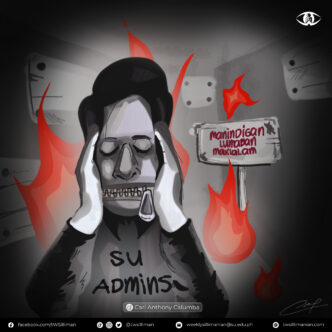Student organizations and college councils across various academic units consistently plan events and programs each semester to foster engagement and strengthen community spirit among their members. While these initiatives can be enriching, they also come with significant financial costs, typically passed on to students through membership or council fees.
Although the university administration has consistently emphasized that compliance with such fees should not be mandatory, the reality on the ground tells a different story. There are concerns that the merit and demerit systems enforced by some student organizations may result in students feeling pressures to contribute financially—even when they choose not to participate. In many cases, non-payment is penalized, under the guise of lost merits or additional clearance requirements.
On June 16, 2016, the Silliman University administration issued a memorandum clearly outlining its policy on the collection and solicitation of fees and contributions from students. It stated that student councils fees, membership dues, fines, and similar charges must not be used as conditions for “non-admission, non-promotion, or non-issuance of clearance to students.”

This directive is clear: no student should be financially coerced. However, student organizations argue that funding is necessary to carry out events not limited to acquaintance parties, assemblies, and other important college events. Other costs relating to Hibalag booth construction and the university-wide Intramurals ensure that the college or department are well-represented and supported.
With fees ranging from ₱600 to ₱1,000 per semester, students began voicing their concerns. For many, these costs go beyond what their budgets can handle. At the end of every semester, students need to make up for their demerits through paying corresponding fees or giving certain materials so their clearance forms may be signed by their council. Ultimately, they still need to take money out of their wallets.
The Weekly Sillimanian calls on the SU administration to re-circulate the 2016 memorandum and to issue an updated policy that student organizations and councils must strictly adhere to and follow.
Given that nearly a decade has passed since the passing of the original memorandum, its provisions no longer fully address the evolving landscape of student activities. It is well within the university policy-makers capacity to revise and improve the policy to better reflect current realities and needs of every college.
While it is commendable that several student councils have recently explored installment plans and forged partnerships with local businesses to incentivize payment fees, it is still imperative for college councils to seek or adopt similar creative solutions, with the aim of reducing the financial burden on students while ensuring their full participation in enriching college experiences.













